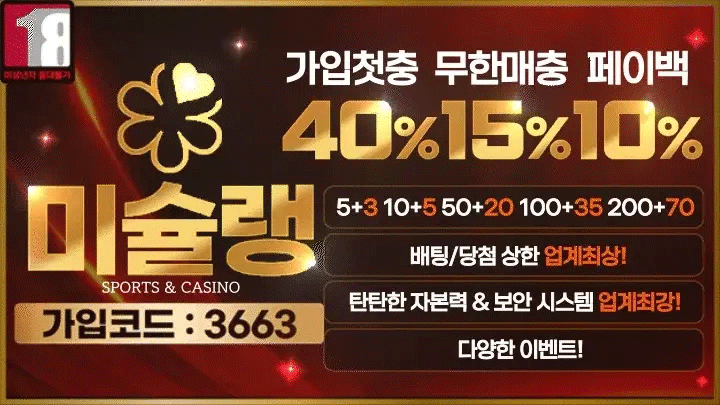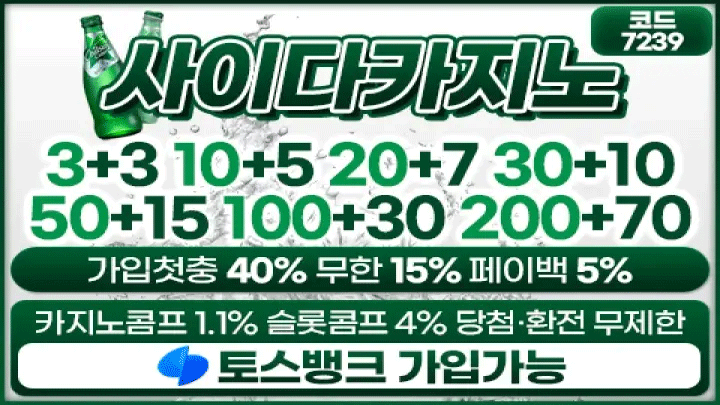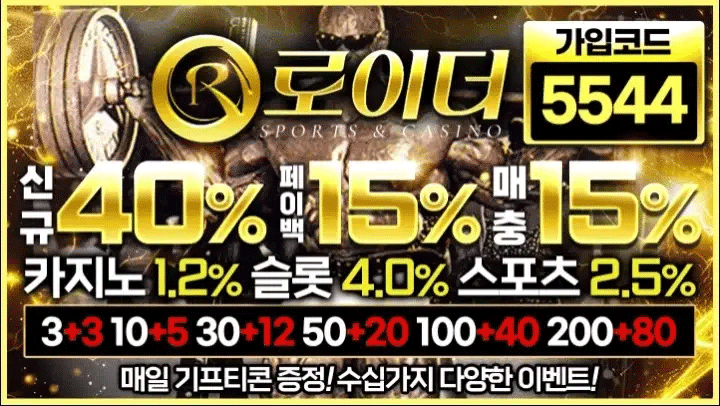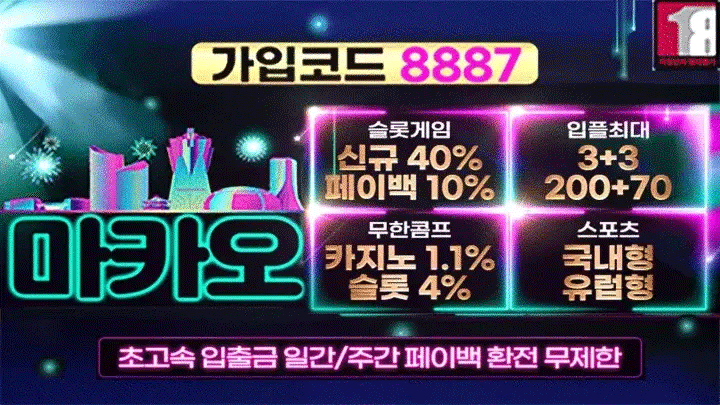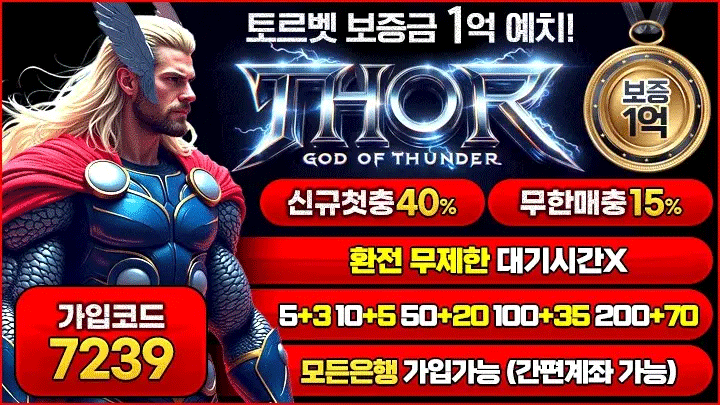토토사이트 순위 토토넘
안전한 온라인 베팅을 위한 최고의 선택
온라인 베팅 환경은 끊임없이 변화하고 있으며, 그 속에서 신뢰할 수 있는 안전놀이터를 찾는 것은 매우 중요합니다. 2025년 현재, 토토사이트 시장은 기술 혁신과 사용자 행동 변화에 따라 빠르게 재편되고 있습니다.

본 가이드는 이러한 최신 트렌드를 반영하여 2025년 최고의 토토사이트 다섯 곳을 엄선하고, 각 플랫폼의 특징과 장단점을 심층 분석하여 여러분의 안전하고 즐거운 베팅 경험을 지원합니다.
2025년 토토사이트 시장 현황 및 주요 트렌드
시장 변화 추이
코로나19 팬데믹은 온라인 베팅 시장에 엄청난 변화를 가져왔습니다. 오프라인 도박 시설의 제한으로 인해 온라인 베팅은 비약적인 성장을 기록했으며, 2025년 현재 2019년 대비 온라인 베팅 규모는 68%, 모바일 베팅은 무려 75% 증가했습니다.

기술 트렌드
- 모바일 최적화의 필수화
- 실시간 베팅 서비스 확대
- 가상화폐 결제 시스템 도입
- AI 기반 개인화 서비스
| 구분 | 코로나19 이전 (2019) | 현재 (2025) | 주요 변화 요인 |
|---|---|---|---|
| 이용 방식 | 오프라인 중심 (65%) | 온라인 중심 (78%) | 사회적 거리두기, 디지털 친화도 증가 |
| 모바일 비중 | 42% | 75% | 스마트폰 보급 확대, 앱 기술 발전 |
| 실시간 베팅 | 전체 베팅의 30% | 전체 베팅의 58% | 5G 네트워크, 스트리밍 기술 향상 |
| 가상화폐 결제 | 5% 미만 | 25% | 암호화폐 대중화, 결제 다양성 요구 |
안전한 토토사이트 선택을 위한 핵심 기준
공식 라이센스
몰타 게이밍 라이센스(MGA), 영국 도박 위원회(UKGC) 등 국제적으로 인정받는 라이센스 보유 여부 확인
보안 시스템
SSL 암호화, 2단계 인증(2FA), 명확한 개인정보 처리방침 등 강력한 보안 체계 구축
사용자 평판
실제 이용자들의 출금 속도, 고객 서비스 품질 등에 대한 리뷰 종합 분석
먹튀 검증
전문 먹튀검증 커뮤니티 확인, 도메인 이력 조사, 소액 입출금 테스트 수행
전문가 조언
"정식 라이센스를 보유한 토토사이트는 정기적인 감사와 규제를 받기 때문에 이용자 보호 측면에서 훨씬 안전합니다. 라이센스 번호를 통해 실제 유효한 인증인지 반드시 확인하세요."
2025년 토토사이트 추천 TOP 5
| 순위 | 사이트명 | 설립연도 | 라이센스 | 종합점수 | 주요 특징 |
|---|---|---|---|---|---|
| 1위 | 벳365코리아 | 2001년 | 영국 도박위원회 | 97.5점 | 압도적인 베팅 옵션, 최고 수준의 라이브 스트리밍, 빠른 출금 처리 |
| 2위 | 피나클 | 1998년 | 몰타 게이밍 어소리티 | 96.2점 | 업계 최고 배당률, 높은 베팅 한도, 전문 베터 친화적 환경 |
| 3위 | 베트맨 | 2006년 | 큐라소 게이밍 | 94.8점 | 한국 스포츠 특화, 풍부한 프로모션, 사용자 친화적 인터페이스 |
| 4위 | 윌리엄힐 | 1934년 | 영국 도박위원회 | 93.5점 | 90년 이상 역사와 전통, 유럽 스포츠 강세, 심층 분석 정보 제공 |
| 5위 | 벳웨이 | 2006년 | 몰타 게이밍 어소리티 | 91.7점 | e스포츠 특화, 혁신적인 서비스, 다양한 베팅 옵션, 모바일 앱 최적화 |
1위: 벳365코리아 상세 분석

주요 특징
2025년 최고의 토토사이트로 선정된 벳365코리아는 글로벌 브랜드의 압도적인 안정성과 한국 시장에 최적화된 서비스를 동시에 제공합니다.
- 40개 이상의 방대한 스포츠 종목
- HD 라이브 스트리밍을 통한 실시간 베팅 시스템
- 승패 예측부터 핸디캡, 오버/언더 등 다양한 베팅 유형
- 완벽한 한국어 지원 및 모바일 최적화
보너스 및 프로모션
| 보너스 유형 | 보너스 금액 | 최소 입금액 | 유효 기간 |
|---|---|---|---|
| 신규 가입 보너스 | 200% 매치 | 10,000원 | 30일 |
| 주간 리로드 보너스 | 50% 매치 | 30,000원 | 7일 |
| VIP 월간 보너스 | 최대 300만원 | 100,000원 | 15일 |
2위: 피나클

강점
- 업계 최고 배당률 (최대 98% 페이백률)
- 높은 베팅 한도와 최소한의 베팅 제한
- 20년 이상의 안정적인 운영 역사
- 풍부한 통계 자료와 베팅 도구 제공
3위: 베트맨

강점
- 한국 스포츠 이벤트(KBO, K리그 등) 특화
- 풍부한 프로모션과 보너스 시스템
- 24/7 한국어 고객 지원
- 평균 10분 이내의 빠른 출금 처리
4위: 윌리엄힐

강점
- 1934년 설립, 90년 가까운 역사와 전통
- 영국 프리미어리그 등 유럽 스포츠 특화
- 전문가 심층 분석 정보 제공
- 투명한 운영과 안정적인 자금 관리
5위: 벳웨이

강점
- e스포츠 베팅 시장 강세
- 혁신적인 서비스와 다양한 베팅 옵션
- 직관적인 모바일 앱 인터페이스
- 다양한 보너스와 빠른 출금 처리
안전놀이터 이용 시 주의사항 및 실용적인 팁
계정 보안 강화
- 대소문자, 숫자, 특수문자를 포함한 12자 이상의 강력한 비밀번호 사용
- 2단계 인증(2FA) 반드시 설정
- 공용 Wi-Fi 사용 시 VPN 활용
- 의심스러운 링크 절대 클릭하지 않기
책임감 있는 베팅
- 명확한 베팅 예산 설정 및 준수
- 감정적인 상태에서 베팅 피하기
- 손실 후 추격 베팅 금지
- 베팅 기록 관리 및 패턴 분석
사기 사이트 식별 방법
| 구분 | 안전한 토토사이트 | 사기 의심 토토사이트 |
|---|---|---|
| 라이센스 | 공식 라이센스 정보 공개 | 라이센스 정보 없음 또는 확인 불가 |
| 보안 시스템 | SSL 암호화, 2FA 지원 | 기본적인 보안 기능 부재 |
| 출금 정책 | 명확한 출금 조건과 신속한 처리 | 복잡한 출금 조건, 지연 또는 거부 |
| 고객 서비스 | 24시간 응대, 다양한 연락 채널 | 연락 어려움, 불친절한 응대 |
2025년 토토사이트 이용자 통계 및 분석
연령대별 이용 현황

20대와 30대가 전체 이용자의 58%를 차지하며, e스포츠 베팅과 모바일 라이브 베팅에 적극적입니다.
40-50대는 35%를 차지하며 축구, 야구 등 전통적인 스포츠에 베팅하는 경향이 강하고 평균 베팅 금액이 높습니다.
인기 베팅 종목

여전히 축구(EPL 28%)가 가장 인기가 많지만, e스포츠 베팅은 LCK와 발로란트 대회를 중심으로 45% 급증하며 무서운 성장세를 보이고 있습니다.
평균 단일 베팅 금액은 5만원이며, 주말 베팅 금액이 주중보다 35% 높습니다.
| 구분 | 20-30대 | 40-50대 | 60대 이상 | 전체 평균 |
|---|---|---|---|---|
| 이용자 비율 | 58% | 35% | 7% | 100% |
| 선호 종목 | e스포츠, 축구 | 축구, 야구 | 경마, 야구 | 축구(28%) |
| 평균 베팅액 | 3.8만원 | 6.5만원 | 4.2만원 | 5만원 |
| 모바일 이용 | 92% | 65% | 45% | 78% |
결론: 현명한 선택으로 즐겁고 안전한 베팅을!
2025년 토토사이트 시장은 더욱 다양하고 고도화된 선택지를 제공합니다. 안전 토토사이트를 선택할 때는 단순히 높은 보너스에 현혹되기보다, 공식 라이센스, 강력한 보안 시스템, 투명한 운영, 그리고 긍정적인 사용자 평판을 최우선으로 고려해야 합니다.
본 가이드에서 추천된 TOP 5 사이트들은 각자의 독점적인 강점을 가지고 있습니다. 벳365코리아는 종합적인 서비스와 압도적인 안정성으로, 피나클은 업계 최고 배당률로, 베트맨은 한국 이용자 친화적인 맞춤 서비스로, 윌리엄힐은 오랜 역사와 전통으로, 마지막으로 벳웨이는 e스포츠 특화 및 혁신적인 서비스로 차별화된 가치를 제공합니다.
전문가의 조언
온라인 베팅은 언제나 책임감 있는 자세로 즐기는 것이 중요합니다. 자신의 예산을 설정하고, 감정적인 베팅을 지양하며, 꾸준히 안전 수칙을 지킨다면 더욱 즐겁고 건전한 베팅 문화를 만들어갈 수 있습니다.
이 가이드가 여러분의 2025년 안전하고 성공적인 베팅 경험에 도움이 되기를 진심으로 바랍니다.
대부분의 토토사이트 순위 사이트는 다음과 같은 문제점을 가지고 있을 수 있으니 주의해야 합니다.
- 광고료를 받고 특정 사이트를 홍보하는 경우가 많습니다.
- 실제로 검증 없이 임의로 순위를 작성하기도 합니다.
- 과도한 클릭을 유도하는 콘텐츠가 많을 수 있습니다.
진정으로 믿을 만한 순위 사이트는 다음과 같은 특징을 가집니다.
- 광고 없이 독립적으로 운영됩니다.
- 명확한 평가 기준을 공개합니다.
- 긍정적인 리뷰뿐만 아니라 부정적인 리뷰도 공정하게 게시합니다.
2025년에 가장 안전한 토토사이트를 선택할 때는 공식 라이센스 보유 여부와 **강력한 보안 시스템(SSL 암호화, 2단계 인증)**이 가장 중요합니다. 또한 토토사이트 먹튀검증 결과, 사용자 리뷰를 통한 긍정적인 평판, 그리고 신속하고 투명한 토토사이트 환전 속도와 고객 서비스 품질을 확인하는 것이 필수적입니다.
친구 또는 지인의 추천을 받은 사이트라도 다음 사항을 확인하고 이용하는 것이 좋습니다.
- 직접 1개월 정도 관찰한 후, 소액으로 시작해 보세요.
- 해당 사이트의 모든 이용 약관을 꼼꼼히 확인하세요.
- 추천인과 사이트 사이에 어떤 관계도 없는지 확인해 보세요.
- 과도하게 추천 보상이 있다고 한다면 피라미드 방식의 사기일 가능성도 있으니 주의해야 합니다.
"100% 보증"이라는 말은 항상 주의해야 합니다. 진정한 보증사이트는 다음과 같은 특징을 가집니다.
제3자 검증기관과 제휴하여 운영됩니다.
실제로 피해를 보상해 준 사례가 존재해야 합니다.
사이트가 보유한 보증금 현황을 투명하게 공개합니다.
2025년에는 가짜 보증을 내세우는 사기 사이트도 많으므로, 반드시 직접 확인하고 여러 정보를 교차 검증해야 합니다.
어떤 방법이 더 낫다고 단정할 수는 없지만, 일반적으로는 소액으로 여러 번 베팅하는 것이 리스크 관리 측면에서 더 유리하다고 볼 수 있어요. 고액 베팅은 한 번에 큰 수익을 얻을 수 있지만, 실패했을 때의 손실도 매우 커요. 반면 소액으로 여러 번 베팅하면 분산 투자를 통해 전체적인 리스크를 줄이고, 다양한 경기나 종목에 베팅하면서 경험을 쌓을 수도 있죠. 물론 이 또한 개인의 베팅 스타일과 자금 상황에 따라 달라질 수 있어요.
국제적으로 공신력 있는 라이센스를 보유하고, 오랜 운영 이력과 좋은 평판을 가진 해외 토토사이트는 국내 이용자들에게도 비교적 안전한 베팅 환경을 제공합니다. 하지만 국내 법률과 해외 사이트의 규제 환경이 다를 수 있으므로, 항상 본인이 거주하는 국가의 법률을 준수하고, 사이트의 먹튀검증 상태와 보안 시스템을 철저히 확인해야 합니다.
토토사이트를 이용하다 보면 다양한 베팅 용어를 접하게 돼요.
- 핸디캡: 강팀과 약팀의 전력 차이를 보정하기 위해 약팀에 가상의 점수(핸디캡)를 부여하여 베팅하는 방식이에요. 예를 들어, -1 핸디캡은 강팀이 2점 이상 이겨야 승리하는 거죠.
- 언더/오버 (언오버): 경기 총득점이 미리 정해진 기준점보다 높을지(오버) 낮을지(언더) 예측하는 방식이에요.
- 승무패: 가장 기본적인 베팅으로, 경기 결과가 홈팀 승리, 무승부, 원정팀 승리 중 무엇일지 예측하는 거예요.
이 외에도 다양한 베팅 용어가 있으니, 베팅하기 전에 용어의 의미를 정확히 파악하는 것이 중요해요.
가상계좌는 개인정보 보호에 도움이 될 수 있지만, 다음과 같은 사항을 확인해야 합니다.
사이트에서 제공하는 전용 가상계좌만 사용해야 합니다.
입금 시 1회용 계좌번호가 생성되는 기능이 있는지 확인하는 것이 좋습니다.
입금 후 즉시 계좌번호가 폐기되는 시스템이 이상적입니다.
출금 문제가 발생했을 때는 다음 순서로 대처해 보세요.
가장 먼저 사이트 고객센터에 문의하세요.
24시간 내에 답변이 없으면 먹튀검증업체에 신고하세요.
해당 사이트를 이용하는 다른 사용자들의 커뮤니티에서 동일한 문제가 없는지 확인해 보세요.
만약 결제 시 신용카드 등을 사용했다면, 결제수단 제공업체(카드사 등)에 도움을 요청할 수도 있습니다.
사이트 접속이 안 될 때 다음과 같이 해보세요.
- 가장 먼저 URL 철자가 정확한지 다시 확인하세요.
- DNS 설정을 변경하거나 VPN 사용을 시도해 보세요.
- 사이트의 공식 SNS 채널을 확인하여 공지가 올라왔는지 보세요.
- 다른 이용자들도 접속 문제가 있는지 관련 커뮤니티에서 확인해 보세요.
- 만약 12시간 이상 접속이 지속적으로 불가능하다면, 먹튀 가능성을 의심해 봐야 합니다.
2025년에는 금융실명제가 강화되어 가족 계좌 사용에 문제가 발생할 수 있습니다.
- 본인 명의의 계좌만 허용하는 경우가 대부분입니다.
- 가족 계좌를 사용하면 출금이 제한될 수 있습니다.
- 명의 도용으로 간주되어 계정이 정지될 가능성도 있습니다.
미니게임은 스포츠 베팅보다 훨씬 짧은 시간 안에 결과가 나오기 때문에 중독성이 강하고, 사기 위험도 높아요. 특정 패턴이 있는 것처럼 보이게 조작하거나, 사용자가 돈을 잃도록 시스템을 설계하는 경우가 많죠. 2025년 현재는 미니게임에 대한 규제도 강화되고 있지만, 안전성이 검증되지 않은 사이트에서 미니게임을 이용하는 것은 매우 위험해요. 되도록 피하거나 소액으로만 즐기는 것을 권장합니다.
2025년에는 '멀티 계정 방지 시스템'이 발달하여 여러 사이트를 동시에 이용하는 것이 어려워졌습니다.
동일한 인증 정보로는 하나의 사이트만 이용 가능하게 제한하는 경우가 많습니다.
IP 추적을 통해 다중 계정을 차단하기도 합니다.
일부 사이트는 멀티 계정을 허용하기도 하지만, 여러 계정을 관리하는 것이 어려울 수 있습니다.
네, 토토사이트 이용 기록은 분명히 남아요. 특히 사설 토토사이트는 국내에서 불법이기 때문에, 만약 수사기관이 마음먹고 추적한다면 입출금 기록이나 접속 기록 등이 남을 수 있어요. 은행 거래 내역, 결제 앱 기록, IP 주소 기록 등 다양한 경로를 통해 이용 사실이 드러날 가능성이 있죠. 국내법상 불법인 만큼, 이런 기록들이 나중에 문제가 될 수도 있다는 점을 인지하고 있어야 해요.
2025년에는 사용자 안전을 위한 새로운 시스템들이 등장했습니다.
- 생체인증 출금: 지문이나 얼굴 인식 등으로 출금하는 시스템으로 보안을 강화합니다.
- AI 이상징후 탐지: 사용자의 베팅 패턴을 분석하여 이상 징후를 미리 감지하고 경고합니다.
- 블록체인 거래 기록: 모든 금융 거래 내역을 블록체인에 기록하여 투명성을 높입니다.
- 실시간 자본금 공개: 사이트가 보유한 자금을 실시간으로 공개하여 신뢰도를 높입니다.
토토사이트를 처음 이용하는 초보자는 다음 사항을 주의해야 합니다.
처음에는 소액으로 시작하여 사이트 이용에 익숙해지는 것이 좋습니다.
한 사이트에만 집중하기보다는 여러 사이트를 비교해보고 선택하세요.
감정에 휩쓸리지 않고 냉정하게 판단하는 것이 중요합니다.
반드시 여유 자금만 사용해야 합니다. 절대 무리한 금액을 베팅하지 마세요.
주변 사람의 추천보다는 직접 먹튀검증을 통해 안전성을 확인하는 것이 현명합니다.
스포츠토토: 실제 축구, 야구 등 스포츠 경기 결과를 예측하여 베팅하는 방식입니다.
롤토토: 리그 오브 레전드(LoL)와 같은 e스포츠 경기 결과에 베팅하는 방식입니다. 롤토토는 비교적 새로운 형태이며, 2025년에는 롤토토 전용 사이트도 생겨났습니다.
사이트의 보안을 확인하려면 다음 사항을 살펴보세요.
웹사이트 주소창에 자물쇠 아이콘이 있는지 확인하여 SSL 암호화가 적용되었는지 보세요. 이는 데이터가 안전하게 전송된다는 의미입니다.
계정을 더욱 안전하게 보호해 주는 2단계 인증(2FA)을 지원하는지 확인하세요.
사이트가 정기적인 보안 점검을 공지하는지, 그리고 과거에 해킹 사고 이력이 없는지 조사해 보세요.
토토사이트를 이용할 때는 멘탈 관리가 정말 중요해요. 돈을 잃으면 '본전 생각'에 무리하게 베팅하거나, 이겼을 때 '더 벌 수 있다'는 욕심에 과도하게 베팅할 수 있기 때문이죠. 이런 감정적인 베팅은 결국 큰 손실로 이어질 수 있어요. 항상 냉정하게 판단하고, 미리 정해둔 원칙(예: 손실 한도, 베팅 금액)을 지키는 것이 중요해요. 멘탈이 흔들린다면 잠시 쉬어가세요.
계정이 갑자기 정지되었다면 다음과 같이 대처하세요.
우선 고객센터에 연락하여 정확한 정지 사유를 문의하세요.
필요하다면 본인 인증 자료를 다시 제출하세요.
사이트의 이용 약관을 위반한 사실이 없는지 다시 확인해 보세요.
동일한 IP 주소에서 여러 계정을 사용한 기록이 없는지 점검해 보세요.
해외 토토: 필리핀, 맨섬 등 국제적으로 정식 라이선스를 취득하고 운영되는 사이트입니다.
국내 사설토토: 국내에서 허가 없이 불법적으로 운영되는 사이트입니다.
해외 사이트도 100% 안전하다고 볼 수는 없으며, 국내 사설토토는 법적으로도 문제가 될 수 있어 더욱 위험합니다.
충전(입금) 보너스는 언뜻 좋아 보이지만, 무조건 좋은 건 아니에요. 대부분의 보너스에는 '롤링 조건'이라는 게 붙어있어요. 예를 들어, 10만 원을 충전하고 1만 원 보너스를 받았다면, 총 11만 원의 몇 배(예: 300%)를 베팅해야만 출금할 수 있다는 조건이죠. 이 롤링 조건이 너무 높으면 오히려 돈이 묶여 출금이 어려워질 수 있어요. 보너스만 보고 혹하지 말고, 반드시 롤링 조건을 확인하세요.
2025년에 가장 안전한 토토사이트를 선택할 때는 공식 라이센스 보유 여부와 **강력한 보안 시스템(SSL 암호화, 2단계 인증)**이 가장 중요합니다. 또한 토토사이트 먹튀검증 결과, 사용자 리뷰를 통한 긍정적인 평판, 그리고 신속하고 투명한 토토사이트 환전 속도와 고객 서비스 품질을 확인하는 것이 필수적입니다.
토토사이트를 이용할 때는 멘탈 관리가 정말 중요해요. 돈을 잃었을 때 '본전 생각'에 무리하게 베팅하거나, 이겼을 때 '더 벌 수 있다'는 욕심에 과도하게 베팅하는 경우가 많기 때문이죠. 이런 감정적인 베팅은 결국 큰 손실로 이어질 수 있어요. 항상 냉정하게 판단하고, 미리 정해둔 원칙(예: 손실 한도, 베팅 금액)을 지키는 것이 중요해요. 멘탈이 흔들린다면 잠시 쉬어가세요.
토토사이트 이벤트는 잘 활용하면 추가 이득을 얻을 수 있지만, 항상 주의해야 해요. '매충(매일 충전) 보너스', '페이백 이벤트' 등 다양한 이벤트가 있는데, 앞서 말했듯이 이 이벤트에도 '롤링 조건'이나 '최대 지급 한도' 같은 조건이 붙어있을 수 있어요. 무조건 참여하기보다는 조건을 꼼꼼히 확인하고, 본인의 베팅 계획과 맞지 않거나 과도한 베팅을 유도하는 이벤트라면 참여하지 않는 것이 좋아요.
토토사이트 이벤트는 잘 활용하면 추가 이득을 얻을 수 있지만, 항상 주의해야 해요. '매충(매일 충전) 보너스', '페이백 이벤트' 등 다양한 이벤트가 있는데, 앞서 말했듯이 이 이벤트에도 '롤링 조건'이나 '최대 지급 한도' 같은 조건이 붙어있을 수 있어요. 무조건 참여하기보다는 조건을 꼼꼼히 확인하고, 본인의 베팅 계획과 맞지 않거나 과도한 베팅을 유도하는 이벤트라면 참여하지 않는 것이 좋아요.
라이브 베팅은 경기가 이미 시작된 후에 진행되는 동안 실시간으로 베팅하는 방식입니다. 2025년에는 AI가 제공하는 실시간 분석 데이터를 활용하여 베팅할 수 있는 사이트들이 늘어났습니다.
승인전화가 없는 사이트는 편리해 보이지만, 대부분 높은 위험을 동반합니다. 2025년에는 안전한 사이트 대부분이 본인 확인을 위해 승인전화를 요구합니다. 승인전화가 없는 사이트는 가입이 쉽다는 장점이 있지만, 나중에 문제가 발생했을 때 해결하기 어려울 수 있습니다.
해외 축구에 베팅할 때는 다음과 같은 점들을 고려하면 좋아요.
- 팀 전력 분석: 단순한 순위보다는 최근 경기력, 주전 선수 부상 여부, 홈/원정 경기 기록 등을 면밀히 분석하세요.
- 리그 특성: 프리미어리그는 공격적이고, 세리에A는 수비적이라는 등 각 리그의 특성을 이해하는 것도 도움이 됩니다.
- 배당률 변동: 경기가 시작하기 전까지 배당률이 계속 변동하는데, 이는 대중의 심리나 경기 관련 새로운 정보가 반영된 결과일 수 있으니 주시할 필요가 있어요.
- 전문가 분석 참고: 유명 스포츠 분석가의 예측이나 통계 자료를 참고하는 것도 좋습니다. 하지만 맹신하기보다는 본인의 판단에 따라 결정하세요.
충전(입금) 보너스는 언뜻 좋아 보이지만, 무조건 좋은 건 아니에요. 대부분의 보너스에는 '롤링 조건'이라는 게 붙어있어요. 예를 들어, 10만 원을 충전하고 1만 원 보너스를 받았다면, 총 11만 원의 몇 배(예: 300%)를 베팅해야 출금할 수 있다는 조건이죠. 이 롤링 조건이 너무 높으면 오히려 돈을 묶어두는 꼴이 되어 출금이 어려워질 수 있어요. 보너스만 보고 혹하지 말고, 반드시 롤링 조건을 확인하세요.
어떤 방법이 더 낫다고 단정할 수는 없지만, 일반적으로는 소액으로 여러 번 베팅하는 것이 위험 관리 측면에서 더 유리하다고 볼 수 있어요. 고액 베팅은 한 번에 큰 수익을 얻을 수 있지만, 실패했을 때의 손실도 매우 커요. 반면 소액으로 여러 번 베팅하면 분산 투자를 통해 전체적인 위험을 줄이고, 다양한 경기나 종목에 베팅하면서 경험을 쌓을 수도 있죠. 물론 이 또한 개인의 베팅 스타일과 자금 상황에 따라 달라질 수 있어요.
2025년 기준 안전한 사이트를 찾는 방법:
공식 먹튀검증업체 인증 여부 확인
최소 3년 이상 운영 실적 확인
실제 이용자 후기 검토(단, 조작된 후기 주의)
24시간 고객센터 운영 여부 확인
다양한 결제 수단(안전한 출금 방법) 지원 확인
꽁머니는 토토사이트에서 사용자에게 무료로 제공하는 베팅 크레딧을 의미합니다. 크게 두 가지 유형이 있습니다.
진짜 꽁머니: 실제로 베팅하여 얻은 수익을 출금할 수 있는 보너스입니다.
가짜 꽁머니: 베팅은 가능하지만, 이겨도 돈을 출금할 수 없는 보너스입니다.
2025년 현재, 실제로 출금 가능한 진짜 꽁머니를 제공하는 사이트는 매우 드물어졌으니 주의가 필요합니다.
안전놀이터는 사용자 개인정보 보호를 위해 SSL 암호화 기술을 사용하고, 2단계 인증(2FA) 시스템을 제공합니다. 또한 명확한 개인정보 처리방침을 공개하여 어떤 정보를 수집하고 어떻게 사용하는지 투명하게 알려줍니다. 가입 전 해당 사이트의 개인정보 보호 정책을 반드시 확인하여 안전성을 검토하는 것이 중요합니다.
가장 중요한 마지막 조언은 "절대 사설 토토사이트 이용은 법적으로 안전하지 않다"는 점을 명심하는 거예요. 국내에서는 배트맨토토를 제외한 모든 사설 토토사이트 이용이 불법입니다. 앞서 설명한 안전놀이터나 메이저놀이터는 사기를 당하지 않을 가능성이 높다는 의미일 뿐, 법적인 안전을 보장하는 건 아니에요. 따라서 항상 법적인 문제와 먹튀 위험을 인지하고, 과도한 베팅이나 무분별한 사이트 이용은 절대 피해야 합니다. 여유 자금으로만 즐기고, 손실 한도를 정해두는 등 자기 통제를 철저히 하는 것이 가장 중요해요.
사이트의 평판을 확인하려면 다음 방법을 활용해 보세요.
독립적인 리뷰 사이트를 확인하여 사용자들의 객관적인 평가를 살펴보세요.
관련 커뮤니티에서 사용자들의 평가를 확인하되, 조작된 평가가 있을 수 있으니 주의하세요.
사이트 운영사의 정보를 검색하여 회사 등록 정보 등을 확인해 보세요.
과거에 다른 이름으로 운영했던 사이트의 이력이 있는지 조사해 보는 것도 도움이 됩니다.
안전놀이터: 먹튀(사기) 위험이 없고 자본금이 충분히 확보되어 있는 사이트
메이저놀이터: 오랜 기간 안정적으로 운영되며 많은 이용자를 보유한 대형 사이트
모든 메이저놀이터는 안전놀이터에 포함되지만, 모든 안전놀이터가 메이저는 아닙니다.
토토사이트는 스포츠 경기 결과를 예측하여 베팅할 수 있는 온라인 플랫폼입니다.
축구, 야구, 농구, 골프 등 다양한 스포츠와 e스포츠, 카지노 게임까지 베팅 대상이 다양합니다.
합법적으로 운영되는 사이트와 사설로 운영되는 사이트가 있으므로 반드시 안전성을 확인해야 합니다.
2025년 현재, 먹튀 피해를 입었을 때 다음과 같은 조치를 취할 수 있습니다.
사이버경찰청에 신고할 수 있지만, 사설 토토사이트는 추적이 어려워 해결이 쉽지 않을 수 있습니다.
민사 소송을 제기할 수도 있지만, 사이트 운영자를 특정하기 어려워 실질적인 조치가 어려울 수 있습니다.
가장 현실적인 방법 중 하나는 먹튀검증 커뮤니티에 피해 사실을 공유하여 다른 이용자들을 보호하는 것입니다.
해외 토토사이트의 경우 일반적으로 국내 세금이 적용되지 않습니다.
하지만 일부 국가에서는 큰 금액을 출금할 때 대금 영수증을 요구하기도 합니다.
토토사이트 커뮤니티는 정보를 얻고 다른 이용자와 소통하는 좋은 공간이 될 수 있어요.
- 정보 습득: 최신 먹튀 정보, 새로운 사이트 정보, 경기 분석 팁 등을 얻을 수 있어요.
- 먹튀 검증: 특정 사이트에 대한 문의나 피해 사례를 공유하며 안전성을 검증하는 데 도움을 받을 수 있죠.
- 소통: 다른 이용자들과 베팅 경험이나 노하우를 공유하며 교류할 수 있어요.
하지만 커뮤니티 정보도 100% 신뢰하기보다는 참고 자료로 활용하고, 조작된 정보나 특정 사이트 홍보 글에 주의해야 해요.
VPN 사용은 다음과 같은 경우에 필요할 수 있습니다.
- 국내에서 차단된 사이트에 접속할 때 필요합니다.
- 하지만 일부 사이트는 VPN 사용 시 계정을 정지시키기도 합니다.
- VPN을 사용하면 인터넷 속도가 느려질 수 있습니다.
- 2025년에는 VPN 탐지 기술이 발달하여 사용이 더욱 어려워지고 있습니다.
먹튀검증은 사이트의 안전성을 확인하는 과정으로:
운영 기간과 신뢰도 확인
자본금 및 보증금 현황 점검
출금 처리 속도 검증
과거 사기 이력 조사
검증되지 않은 사이트는 돈을 출금하지 못하게 하거나 계정을 정지시키는 등의 피해를 입을 수 있습니다.
오랫동안 운영된 사이트는 긍정적인 지표가 될 수 있지만, 오래되었다고 해서 항상 안전하다고 단정할 수는 없습니다.
- 오래된 사이트도 갑자기 먹튀를 하는 경우가 생길 수 있습니다.
- 과거의 기록을 꼼꼼히 확인하고, 최근 6개월간의 평가가 더 중요합니다.
배팅 오류가 발생하면 즉시 다음 조치를 취하세요.
- 배팅 내역을 스크린샷으로 저장하여 증거를 남기세요.
- 저장 즉시 고객센터에 문의하여 상황을 설명하세요.
- 사이트의 배팅 오류 정책을 확인하고, 오류가 확인되면 환급을 요청하세요.
토토사이트 커뮤니티는 정보를 얻고 다른 이용자와 소통하는 좋은 공간이 될 수 있어요.
- 정보 습득: 최신 먹튀 정보, 새로운 사이트 정보, 경기 분석 팁 등을 얻을 수 있어요.
- 먹튀 검증: 특정 사이트에 대한 문의나 피해 사례를 공유하며 안전성을 검증하는 데 도움을 받을 수 있죠.
- 소통: 다른 이용자들과 베팅 경험이나 노하우를 공유하며 교류할 수 있어요.
하지만 커뮤니티 정보도 100% 신뢰하기보다는 참고 자료로 활용하고, 조작된 정보나 특정 사이트 홍보 글에 주의해야 해요.




